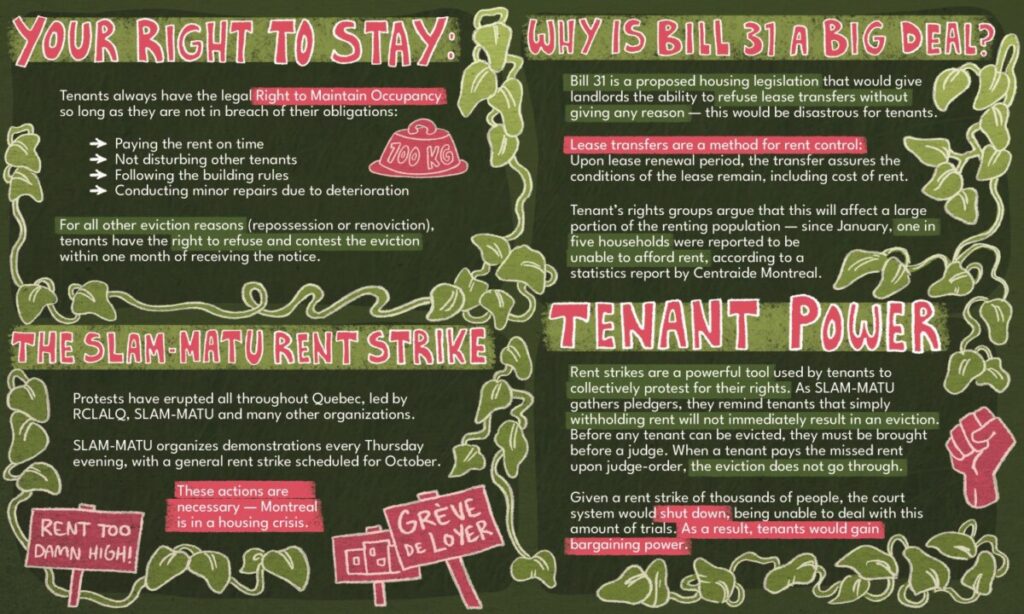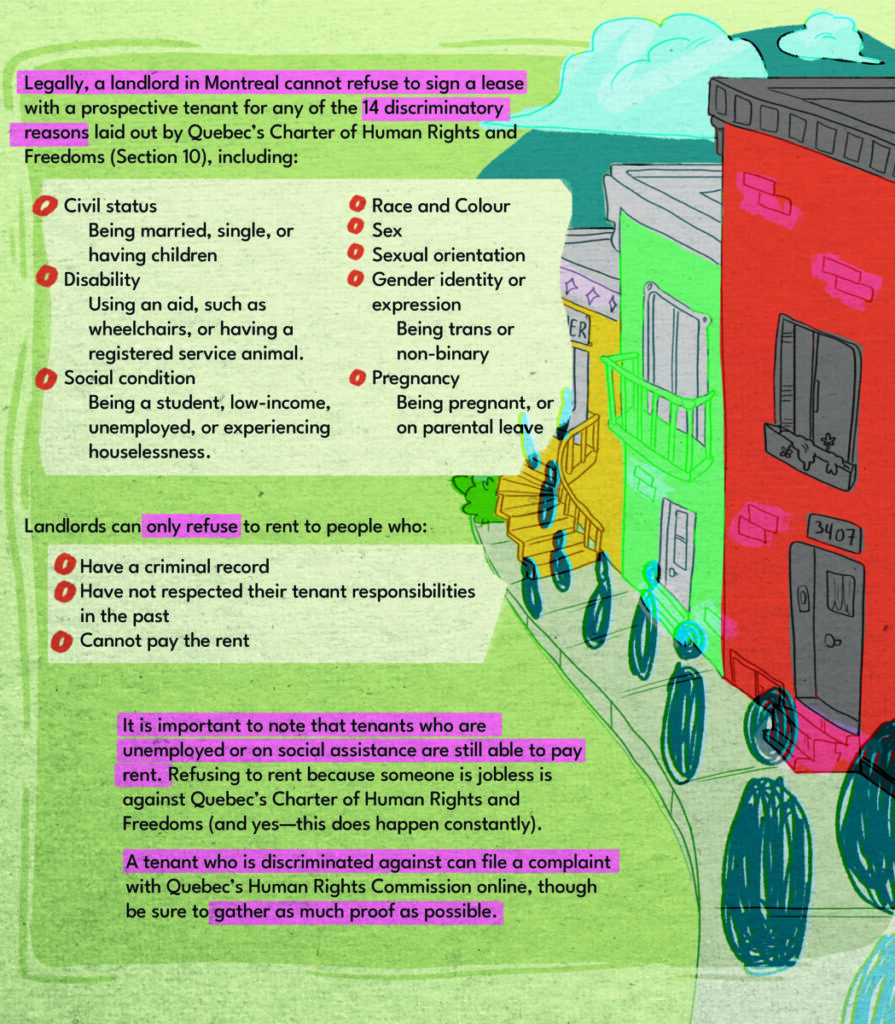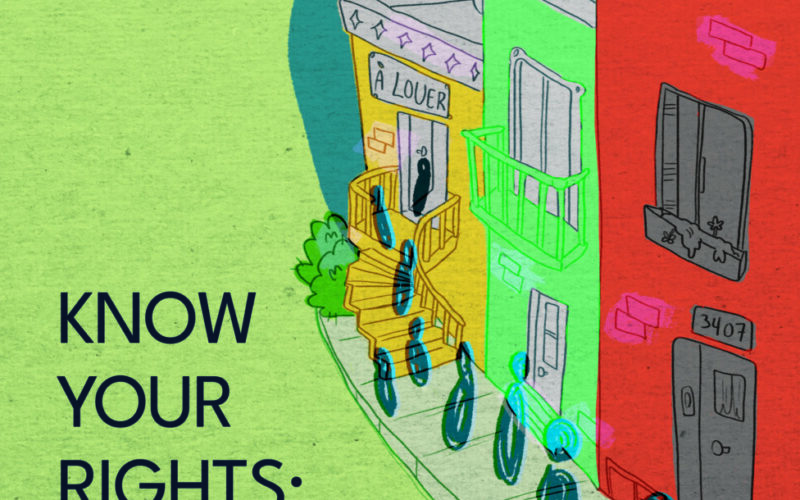How students can avoid a breach of their rights as tenants.


When searching for apartments online, it is common to see ads where landlords demand that tenants must be employed full-time, must have a guarantor, cannot have children or pets (often regardless of whether they are used for overcoming a disability), and many other examples that infringe on peoples’ rights.
Due to dominant patterns of income disparity and socio-economic disadvantage linked to systemic racism, sex discrimination, and colonization, the result of this kind of tenant selection disproportionately excludes members of groups facing discrimination and gives preference to white, able-bodied households without children.
Many landlords believe it is economically savvy for them to cherry-pick their tenants based around racist and colonial prejudices. Quebec Minister Responsible for Housing, France-Élaine Duranceau, in a 2023 CBC interview, stated that “The landlord owns the building, they invested in it and took the risks, and it should be up to them to decide who lives there.” This sentiment is inherently unethical, displaying plainly that our current housing system is not intended to house everyone—landlords alone decide who is deserving of this human right.
With the possibility of Bill-31’s approval approaching, a housing legislation that would give landlords the ability to refuse lease transfers without giving any reason, it is all the more important to remember that it is the groups vulnerable to discrimination that feel these negative effects more powerfully. Already, there is a serious gap in housing accessibility—CTV News stated in 2022 that an Indigenous person living in Montreal is “27 times more likely to be homeless than a non-Indigenous person.”
This housing inaccessibility is only slated to rise as rents increase unsustainably. The Regroupement des Comités Logements et Associations de Locataires du Québec (RCLALQ) analyzed 51,000 rental listings in 2022, and they found that Quebec’s rental prices rose by an average of nine per cent from 2021, with studio apartments having increased by a staggering 19 per cent. To combat these worsening conditions, protests led by housing advocacy organizations have erupted across Montreal.




